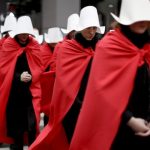Are you wrecked by the racial repugnance of parks? Or their heterosexual, capitalist norms? Perhaps more pointedly, how about pretty public places’ unjust amphibian gendering? An ecological panel recently probed the pernicious particulars.
On February 2nd, a video was posted online by Forest Stewards Guild. The footage captured a conference called “Seeing the Forest for the Queers.”
A trio of tree-lovers comprised the “queer ecologies panel”:
- Dr. Cate Sandilands, Professor in the Faculty of Environmental Studies at York University in Toronto, Ontario
- Dr. Giovanna Di Chiro Professor of Environmental Studies at Swarthmore College in Swarthmore, Pennsylvania
- Dr. Mel Michelle Lewis, Vice President for Diversity, Equity, Inclusion and Justice at American Rivers in Washington, D.C.
The talk tackled tough questions pertaining to parks:
What does ecology mean to you? Why does it need “queering?” In this introduction and discussion on Queer Ecologies, our panelists explored the interdisciplinary applications Queer Ecologies has in natural resources. We discussed what it means to integrate queer ecological practices into environmental and conservation work.
One might assume what erotically satiates an individual is wholly unrelated to natural areas. But these are the days of sexually political penetration. And in a plethora of ways, the socially aware are pinpointing and improving the problematic:
America’s National Park Service Gives Pride Month the Rainbow Treatment
Nature Journal Rips America’s National Park Names for Honoring ‘White Supremacy’
Woke in the Water: Shark Advocates Call for an End to the Word ‘Attacks’ in Favor of ‘Interactions’
Legal Journal Publishes Plea for Hate Speech Laws Protecting Animals
Fish Fry: Social Justice Sizzles With the Woke Renaming of a Racism-Riddled Carp
College Announces Fierce New Mascot: A Sexless Social Justice Warrior Victimized by Climate Change
Back to the prideful panel, Professor Cate bashed the bigotry of parks. Foresters, she asserted, should take their turn-ons to work:
“[I]t’s…important to think about the ways in which…cis-normativity and heterosexism are actually built into…nature institutions…into environmental policy, into environmental practice. So that would be…one of the things that I would suggest…you take with you into your work as foresters — is how is…our practice of forestry…informed…by ways of thinking about the world that…are…antithetical to queer ecological politics.”
As it turns out, parks are set up for straight people:
“Think about…the design of your local neighborhood park, and what kinds of activities are invited to take place there. And what kind of activities are prohibited from taking place there. Then think about how marginalized populations — including…LGBTQ…people — how these communities might have a different understanding…of the best possible uses of these public spaces. So parks are created with a particular understanding of the public in mind that, I think, specifically includes certain kinds of…LGBTQ activity that have historically been very important to the building of queer community.”
Dr. Cate saluted same-sex trysts in public parks — known in some circles as “pickle parking”:
“The most obvious example of this difference in priorities might be the difference between open, organized spaces for playgrounds and dog walks and flower gardens and sports facilities and the like, and more enclosed, more private spaces in which sexual and other ‘illicit activity’ might occur. Although…public outdoor sexual spaces are by no means the essence of queer culture, parks are historically very important as queer sexual publics.”
Peter Piper picked a peck of pickled prejudice:
“[T]he assumption that parks are designed for heteronormative ‘healthy’ relations shows the fact that health has been thought of in a way that specifically excludes queer forms of sexuality and sociality. So that’s just one example — the park as an institution…was actually built…the history of the urban parks movement is built on an understanding of health that is specifically designed against queers.”
Cate additionally decried “the removal of indigenous people from [wilderness parks], out of the assumption that nature and culture are supposed to be kept in separate places.”
Capitalism, as you likely know, is a system based on a free-market economy in which an individual may own his or her own business. Somehow, parks are not only racist and homophobic, but corrosively capitalist:
“[I]n fact, these nature spaces are still most often heavily designed to create particular kinds of nature experience that are heavily gendered, racialized, and organized according to heterosexual, capitalist norms and values.”
As noted by Campus Reform, another interesting take was had:
[Professor Giovanna Di Chiro, Ph.D.] had an example of her own, criticizing the “unexamined homophobia” in discussions of environmental damage.
When scientists and environmentalists react negatively to a herbicide that causes male frogs to develop female sex organs, she argued, they rely on the gender binary — the belief that there are two genders with distinct anatomies. Sounding the alarm over the feminization of male frogs, [Giovanna’s] argument suggests, is a problem because it treats the gender binary as natural.
Given the off-putting state of public parks, it seems America has its work cut out. Hopefully one day, all people — and all frogs — will feel welcome.
-ALEX


